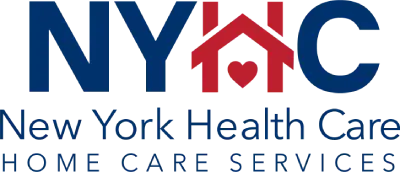Bringing a loved one home after a hospital stay is often a moment filled with both relief and uncertainty. While it’s comforting to know they’re well enough to return home, families are often faced with new questions: How will we manage daily care? Who will help with personal needs? What happens if something changes?
At New York Health Care (NYHC), we understand that this transition period is one of the most critical times in the recovery journey. Our team of compassionate Personal Care Aides (PCAs) helps bridge the gap between the hospital and home environment, offering support that promotes safety, comfort, and dignity.
Here’s what families should know to ensure a smooth transition from hospital to home and how PCA services can make all the difference.
-
Key Questions to Ask the Discharge Planner or Care Coordinator
Before your loved one leaves the hospital, take time to speak with the discharge planner or care coordinator. They can provide details about your loved one’s recovery needs and whether personal care assistance is recommended.
Some helpful questions include:
- What daily activities will my loved one need help with at home?
- Are there mobility or safety concerns we should prepare for?
- How often will they need assistance with bathing, dressing, or meals?
- Are there any specific signs or symptoms we should watch for?
Before leaving the hospital, be sure to let the discharge planner know that you will need discharge paperwork to resume your homecare services with NYHC. Once we are notified, our nursing department will assist with updating your care plan. Knowing what to expect ahead of time helps ensure a safe and comfortable homecoming.
-
How to Prepare the Home Environment
A safe and well-organized home is essential for a successful recovery. Start by removing potential hazards such as loose rugs, cords, or clutter that could lead to falls. Make sure pathways are wide enough for easy movement. That’s especially important if your loved one uses a walker or wheelchair.
Good lighting is also important. Ensure all hallways, bathrooms, and bedrooms are well lit, and consider installing nightlights for evening safety.
If your loved one needs assistance with bathing or toileting, adding grab bars, nonslip mats, or a shower chair can make a big difference. These small adjustments help your loved one feel confident and safe as they regain independence at home.
NYHC’s PCA team can help make the home environment comfortable and safe, following the doctor’s instructions.
-
Understanding Care Plans and Coordination with Physicians
After discharge, your loved one’s doctor or care team may provide a care plan outlining medications, activity levels, diet, and follow-up appointments. It’s important that everyone involved such as family, caregivers, and healthcare professionals, stays on the same page.
While PCAs do not provide medical care, they play an important role in following the care plan by assisting with daily routines that support recovery. This may include helping with hygiene, preparing nutritious meals, reminding clients to take medications, or providing companionship that encourages emotional well-being.
At NYHC, our PCAs work closely with families and other care professionals to ensure consistent, reliable support that meets each client’s unique needs.
-
The Role of Personal Care Aides in Post-Hospital Recovery
Personal Care Aides are a vital part of helping patients transition home safely and comfortably. After a hospital stay, many people need help with daily living tasks while they regain their strength and independence.
A NYHC PCA can assist with:
- Bathing, grooming, and dressing
- Light housekeeping and laundry
- Meal preparation and feeding assistance
- Shopping and errands
- Companionship and emotional support
Beyond practical help, PCAs provide peace of mind. Both for clients and their families. Knowing that a caring professional is there to help each day brings reassurance and stability during recovery.
-
When to Escalate and Return to the Hospital: Warning Signs and Red Flags
While PCAs are trained to support daily needs, they also play a valuable role in observing changes in a client’s condition. Families should stay alert for signs that medical attention may be needed, such as:
- Unusual fatigue or weakness
- Shortness of breath or chest pain
- Fever or signs of infection
- Sudden confusion or unsteady movements
- Loss of appetite or significant mood changes
If any of these occur, contact your loved one’s healthcare provider right away or seek emergency care and notify our agency. Early action can prevent complications and support faster recovery.
Conclusion
The journey from hospital to home is about more than physical recovery. It’s about regaining comfort, independence, and peace of mind. With the compassionate help of NYHC’s Personal Care Aides, families can feel confident knowing their loved one has the daily support they need to recover safely and comfortably at home.
Whether your loved one needs short-term assistance after a hospital stay or ongoing personal care, New York Health Care is here to help in every step of the way. Contact an intake specialist today at 855-446-3300 to start your homecare journey with a reliable and trustworthy provider like New York Health Care.

